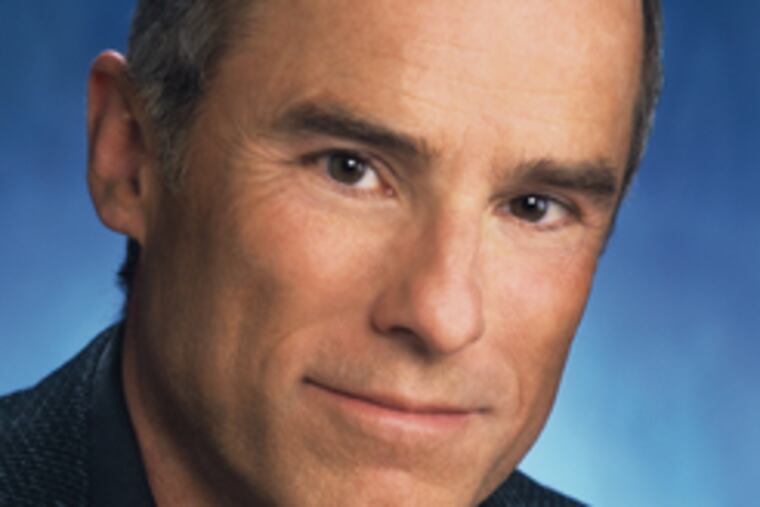
By John Grogan
William Morrow.
334 pp. $25.95
nolead ends nolead begins
Once!
That's how often John Grogan mentions me in his new memoir, The Longest Trip Home.
Once?
Look at how he introduces me. He tells the reader that when he brought me home I was "behaviorally challenged." Well, that takes the dog biscuit.
Anyone reading The Longest Trip Home will surely have read Marley & Me and there will be comparisons between John Grogan and me, Marley. Won't that be a hell of a situation for John? People choosing one book over the other? No, it's not something I relish. I don't want to be in competition with John but I have to believe that in any popularity poll I'd be the winner. Still, he was a great master or owner or whatever you call someone who has a dog. I don't like either word because I don't like the idea of being mastered or owned. I am my own dog.
Look, this is my first - and last - book review, and you know very well why I was asked to do it. Maybe the editors expect fireworks. Maybe they expect me to be a bit crazy the way I was when I lived with John and Jenny and the kids. You're also wondering where I am but I'm not giving out that information. I really don't want humans in my neighborhood.
Let's return to the behavior bit and you'll see who was "challenged." In the new book John admits that in his childhood he had an energy problem. (I know. I know. I had the same problem, but remember I am, or was, a dog.) The kid could not sit still and that bothered his parents. (His parents were always bothered but that's another story and I'll get to it in a minute.)
Here's John: "My earliest memories are of racing through the house like a miniature tornado, shrieking joyously at the top of my lungs." His father literally had to hold him down and then use a stopwatch to see if he could keep still for 60 seconds.
You're getting the picture, of course. This man who labeled me "behaviorally challenged" had to be restrained by father force. But that's the post-infant John, and merely a hint of what was to come.
On one level the book is all about energy - and that, maybe, was one of my problems. (But I was a dog. Give me a break.) In certain ways John, like me, could not be contained. He was defiant, rebellious, independent - but only beyond the walls of his parents' house. At home he generally toed the line. His parents not only were tough, they had God on their side. His academic career in high school was spotty: He graduated with a C+ average. (In high school he got into trouble when he published an outrageous underground newspaper.) Still, he managed to graduate cum laude from Central Michigan University with majors in English and journalism.
John gets into journalism. He marries the beautiful Jenny. They have three children. Facts. (W.H. Auden once wrote, "A shilling life will give you all the facts." It's a line from one of his poems and you're welcome.) All the ingredients of middle-class American life are here: family, religion (and then some), education, health, illness, and a passing reference to a dog. (It hurts.) This book, a splendid guide to 20th-century America, should be distributed at all ports of entry.
Ah, John. You had all that sweetness and wonder and success in your life but . . . but . . . here they come: the dad, the mom.
From my perspective - on the floor or wherever I happened to be - I wondered how the hell you put up with them. I know, I know, they were decent, honorable, loyal people but, baby, they often made you miserable.
And what was it all about?
Mother Church, of course, a church you hardly believed in anymore.
Talk about guilt trips! They deserved Oscars for guilt inducement, guilt growth, guilt transference. John, why did you tolerate your mother's bullying when she insisted that you and Jenny sleep in the parental bedroom on your wedding night? There you were surrounded by statues and holy pictures while humongous rosary beads clanked above you. No wonder Jenny told you that night, "Hands off, buster," or something to that effect.
You didn't want to cause your parents any suffering and that's the way you are, John, but, boy, did you put your marriage in danger. It was a hell of a dilemma - you caught between Jenny and your dogmatic parents.
I won't reveal here how all this was resolved except to say that when you found yourself everything else fell into place.
Good old John. You're all energy and love, passion and compassion - all leavened with a grand sense of humor.
Maybe your passing reference to me in The Longest Trip Home was less than flattering but you weren't any easier on yourself, John. You could make it up to me by writing another book: Life Without Marley.